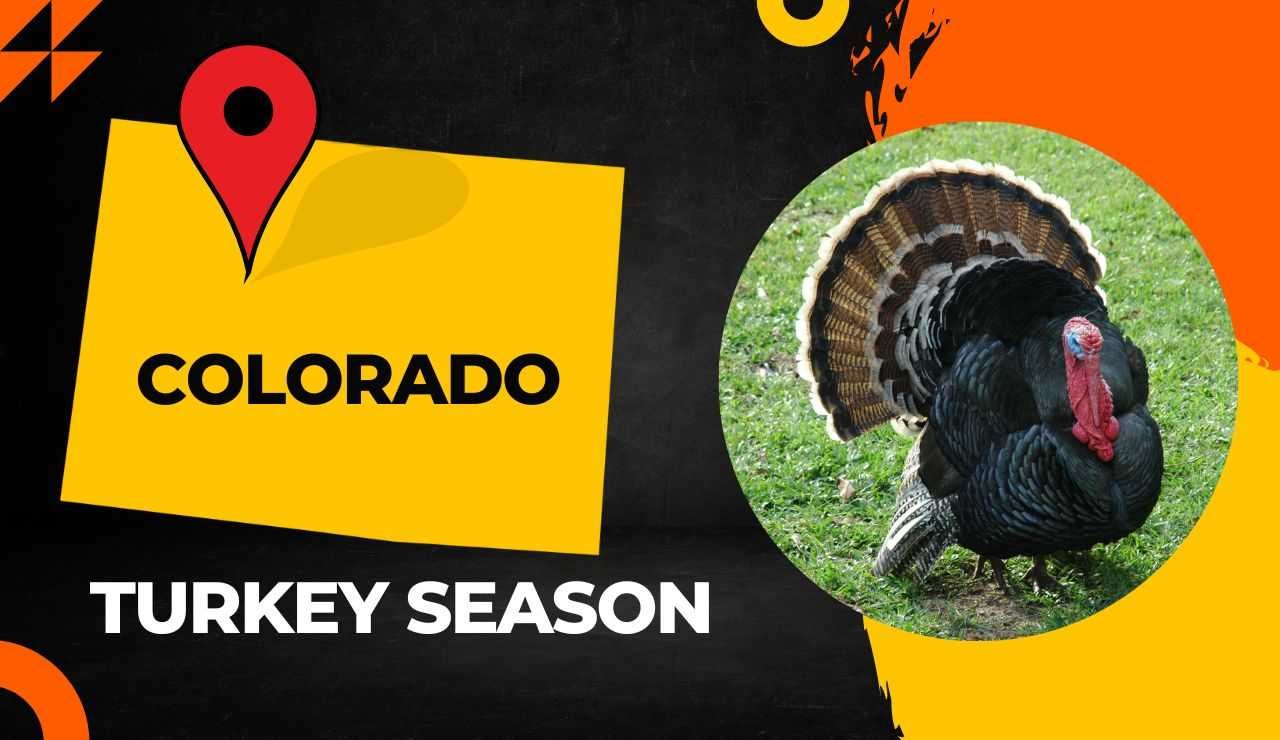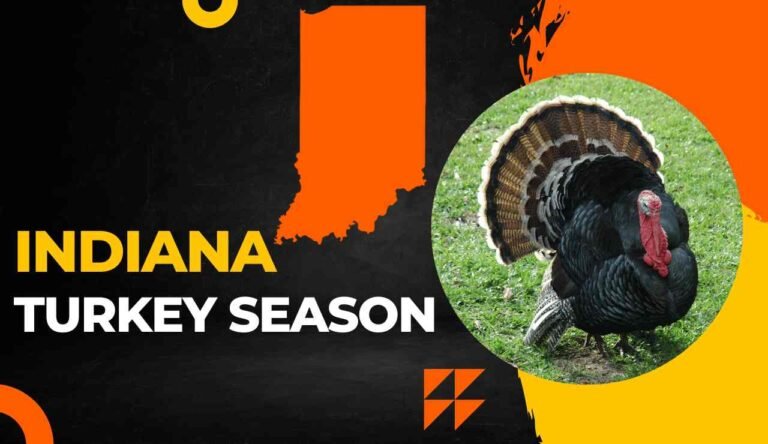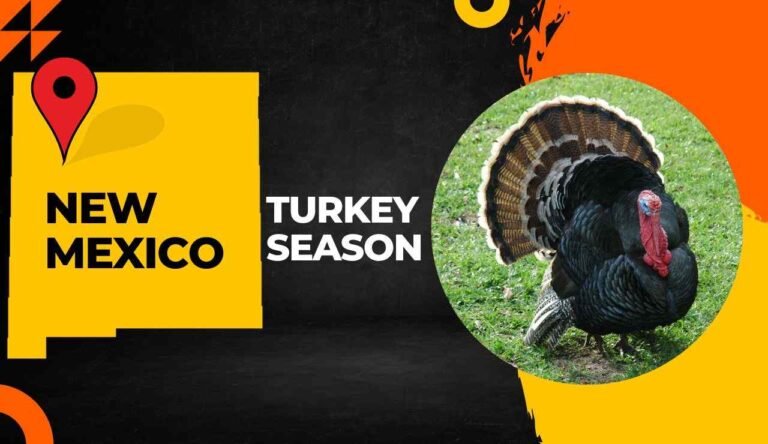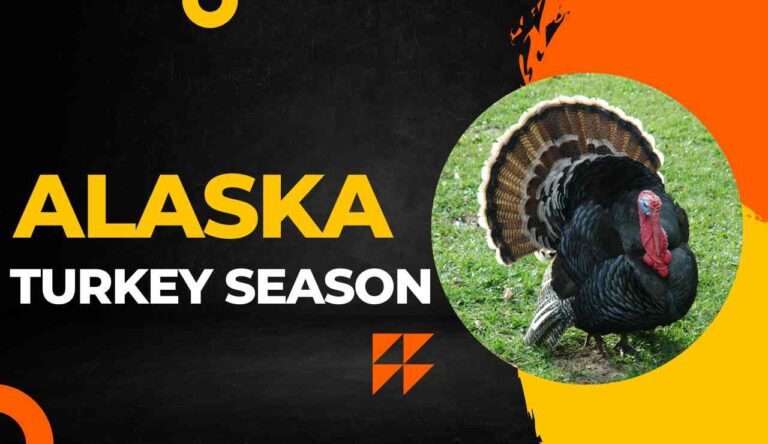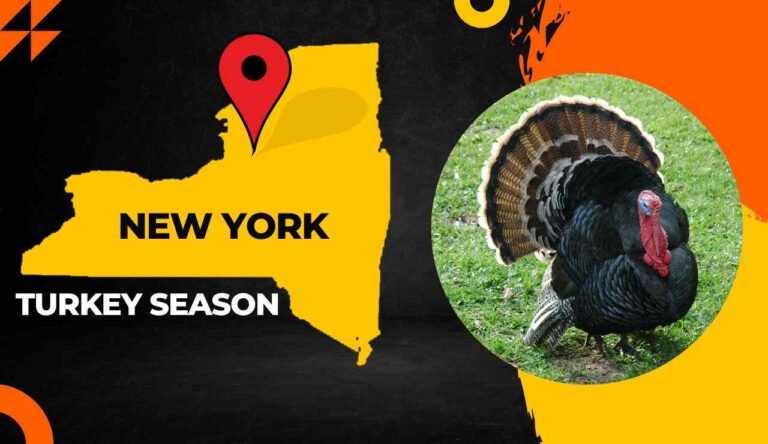🦃Colorado Turkey Season 2025-2026: [Dates, Bag Limits, Regulations & More!]
If you’re planning to chase gobblers through the ponderosa pines or across the eastern plains this coming year, you’ve landed in the right spot. This guide covers everything you need to know about hunting wild turkeys in the Centennial State for the 2025-2026 hunting cycle—from precise dates and licensing requirements to the best zones for bagging a tom. Whether you’re after a mountain Merriam’s or a Rio Grande on private land, we’ve got you covered.
Let’s dive into what makes hunting these magnificent birds such a rewarding experience, and more importantly, when and where you can legally pursue them across various game management units (GMUs).
What You’ll Find in This Guide 📋
This comprehensive resource breaks down the 2025-2026 wild gobbler hunting opportunities throughout the state, including:
- Complete dates for spring, fall, and late-winter hunting periods
- Detailed information about both limited-draw and over-the-counter licenses
- Species breakdown (Merriam’s vs. Rio Grande)
- Game management unit information and zone maps
- Current license fees for residents and non-residents
- Hunter education requirements and bag limits
- Answers to frequently asked questions
Whether you’re a first-timer or a seasoned veteran who’s heard every gobble from the San Juan Mountains to the eastern grasslands, this guide will help you plan your next pursuit.
Quick Reference: Colorado Turkey Season Overview 2025-2026
Here’s a snapshot of what to expect across the three main hunting periods:
| Season Type | Dates | Target | Methods | License Type |
|---|---|---|---|---|
| Spring | April 12 – May 31, 2025 | Bearded birds (toms & jakes) | Shotgun, archery, muzzleloader | Limited draw + OTC |
| Fall | September 1 – October 31, 2025 | Either sex (bearded or beardless) | Shotgun, archery, muzzleloader, rifle* | Limited draw + OTC |
| Late Season | December 15, 2025 – January 15, 2026 | Beardless birds only | Shotgun, archery, muzzleloader, rifle* | OTC (private land only) |
*Note: Rifles and handguns are permitted during fall and late periods only—spring restricts hunters to shotguns, bows, and muzzleloaders.
All Turkey Seasons: Detailed Breakdown for 2025-2026 🗓️
Let’s get into the specifics of each hunting window, application deadlines, and what you need to know before heading afield.
Spring Turkey Season (April 12 – May 31, 2025)
This is prime time for most hunters. Nothing quite compares to hearing that first gobble echo through a misty mountain valley or watching a longbeard strut across an open meadow at dawn.
Season Details:
| Category | Information |
|---|---|
| Season Dates | April 12 – May 31, 2025 |
| Application Deadline | February 4, 2025 (11:59 PM MT) |
| Target Birds | Bearded turkeys only (toms and jakes with visible beards) |
| Bag Limit | Two bearded birds total—one on limited license, one on OTC license |
| Legal Methods | Shotgun, archery, muzzleloader ONLY (no rifles) |
| License Types | Limited draw licenses (specific GMUs) + OTC licenses (multiple units) |
| OTC Sales Begin | March 2025 |
| Leftover Sales | Available in March 2025 after draw results |
Spring hunting focuses exclusively on bearded birds. You can harvest up to two gobblers during this period, but you’ll need both a limited license (obtained through the draw) and an over-the-counter license to reach your two-bird limit. I remember my first spring hunt in GMU 140—the anticipation waiting for that first gobble is something that never gets old, even after years of chasing these wily birds.
Similar to hunting opportunities in neighboring states like Nebraska’s turkey hunting season, timing is everything. The peak gobbling activity typically occurs mid-April through early May as toms seek out hens.
Fall Turkey Season (September 1 – October 31, 2025)
Fall hunting presents a different challenge. Birds aren’t as vocal, and you’re often dealing with flocks rather than solitary strutting toms. But there’s something peaceful about autumn pursuits—the changing aspens, cooler temperatures, and less hunting pressure.
Season Details:
| Category | Information |
|---|---|
| Season Dates | September 1 – October 31, 2025 (some units) |
| Application Deadline | May 30, 2025 (11:59 PM MT) |
| Target Birds | Either sex—bearded or beardless |
| Bag Limit | One bird (either sex) |
| Legal Methods | Shotgun, archery, muzzleloader, centerfire/rimfire rifles, handguns |
| License Types | Limited draw licenses + OTC licenses |
| New for 2025 | GMUs 63 and 431 added to OTC license availability |
Fall represents your chance to harvest a hen for the table or a mature tom that’s survived multiple springs. The expanded weapon choices—including rifles—make this period more accessible for hunters who prefer firearms over shotguns.
Late Season Turkey (December 15, 2025 – January 15, 2026)
This is the hidden gem many hunters overlook. Late-winter hunts on private land can be incredibly productive, especially for filling the freezer with tender young hens.
Season Details:
| Category | Information |
|---|---|
| Season Dates | December 15, 2025 – January 15, 2026 |
| Target Birds | Beardless turkeys only (hens and young birds) |
| Bag Limit | Two beardless birds |
| Land Restrictions | Private land ONLY—must have written permission |
| Legal Methods | Shotgun, archery, muzzleloader, rifles, handguns |
| License Type | Over-the-counter only |
You can purchase up to two beardless bird licenses during this period. Just make sure you’ve secured landowner permission in writing before purchasing your license for a specific GMU. These birds won’t be calling or strutting, so you’ll need to rely on scouting and pattern recognition.
Turkey Species in Colorado: Know Your Target 🦃
The state hosts two distinct wild bird subspecies, each with unique habitat preferences and behaviors.
Merriam’s Turkey 🏔️
The native mountain bird, Merriam’s turkeys thrive in mountainous terrain throughout the Front Range and Western Slope. You’ll find them in:
- Ponderosa pine forests
- Aspen groves
- Gambel’s oak thickets
- Higher elevation habitat (up to 9,000+ feet)
Merriam’s are known for their striking white-tipped tail feathers and tendency to roost in large pines. They’re vocal in spring and can cover significant ground throughout the day as they move between roosting sites and feeding areas.
Rio Grande Turkey 🌾
The introduced eastern subspecies, Rio Grande turkeys populate the plains and lower elevation areas in eastern and southeastern regions of the state. Their preferred habitat includes:
- Riparian corridors along streams and rivers
- Agricultural areas with adjacent cover
- Pine and scrub oak forests
- Open brush country (typically below 6,000 feet)
Rios typically stay closer to water sources than Merriam’s and prefer more open terrain. They’re slightly smaller than Merriam’s but equally challenging to hunt, especially in areas with limited cover.
If you’re interested in comparing hunting experiences across states, Arizona’s turkey season offers similar Merriam’s opportunities in comparable terrain.
Colorado Turkey Hunting Regulations: What’s Legal (and What’s Not) ⚖️
Before you head out, familiarize yourself with these important regulations:
Weapon Restrictions by Season
- Spring Season: Shotguns, archery equipment, and muzzleloaders ONLY—no rifles or handguns
- Fall & Late Seasons: All legal hunting weapons permitted, including centerfire/rimfire rifles and handguns
Tagging Requirements
- Must immediately attach your valid license to the harvested bird
- Turkeys must remain tagged during transport and storage
- Keep your license on your person while hunting
Shooting Hours
- Legal shooting hours: One-half hour before sunrise to one-half hour after sunset
- Check current sunrise/sunset times for your specific location
Calling Restrictions
- Electronic calls are ILLEGAL for hunting turkeys in the state
- Only manual calls (mouth calls, box calls, slate calls, etc.) are permitted
Public vs. Private Land
- Limited licenses valid on both public and private land within specified GMUs
- OTC spring and fall licenses valid on designated public and private lands
- Late-season licenses ONLY valid on private land with written permission
- Always obtain landowner permission before hunting private property
Baiting Prohibition
- Hunting over bait is strictly prohibited
- This includes areas where grain, salt, or other attractants have been placed
Hunter Orange Requirements
- Hunter orange is NOT required for dedicated bird hunting
- However, orange is recommended during overlapping big game rifle periods for safety
License & Tag Fees for 2025-2026 🎟️
Here’s what you’ll pay for various license types and required stamps:
Required for All Hunters
| Item | Resident | Nonresident |
|---|---|---|
| Annual Habitat Stamp (required, ages 18-64) | $12.47 | $12.47 |
| Lifetime Habitat Stamp | $374.47 | $374.47 |
Turkey License Fees
| License Type | Resident | Nonresident |
|---|---|---|
| Spring Turkey (Limited Draw) | $36.86 | $115.86 |
| Spring Turkey (OTC) | $36.86 | $115.86 |
| Fall Turkey (Limited Draw) | $36.86 | $115.86 |
| Fall Turkey (OTC) | $36.86 | $115.86 |
| Late Season Turkey (OTC) | $36.86 | $115.86 |
| Youth License (Under 18) | Reduced rate | Reduced rate |
| Application Processing Fee (nonresident, non-refundable) | N/A | $11.00 |
Money-Saving Tip 💰
Nonresidents can reduce costs by purchasing an upland game bird license first (around $110), which then lowers the individual bird license to approximately $57.50. If you’re planning multiple hunts, this combo approach saves significant money.
Youth hunters under 18 qualify for reduced-cost licenses, making this an affordable way to introduce young hunters to the sport. There’s no minimum age requirement as long as hunter education requirements are met.
License Requirements & How to Apply 📝
Hunter Education Requirements
All hunters must meet one of the following:
- Hunter Education Certificate: Complete an approved hunter education course (required for anyone born on or after January 1, 1949)
- Apprentice Hunter Certificate: First-time hunters can obtain a FREE one-year waiver allowing license purchase without hunter education (renewable once)
- Previous License Holder: Valid hunting license from any state dated within the last 10 years
Youth Hunter Requirements (Under 18)
- Must meet hunter education requirements (certificate or apprentice waiver)
- Under age 16: Must hunt with an adult mentor (18+ with valid hunter education)
- Youth and mentor must maintain visual and auditory contact without aids
- Mentor doesn’t need to actively hunt but must remain with the youth
- Ages 16-17: Can hunt independently after meeting hunter education requirements
How to Apply for Limited Licenses
Spring Limited License:
- Application period: January 2 – February 4, 2025 (11:59 PM MT)
- Apply online at cpwshop.com
- Results typically announced mid-to-late February
- Leftover licenses available for purchase starting March 2025
Fall Limited License:
- Application period: May 1 – May 30, 2025 (11:59 PM MT)
- Applications NOT accepted before May 1
- Apply online at cpwshop.com
- Leftover licenses available after draw results
Purchasing OTC Licenses
Over-the-counter licenses can be purchased:
- Online at cpwshop.com (available 24/7)
- By phone: 1-800-244-5613
- In person at CPW offices and participating license agents statewide
- At state park offices
Important: Only ONE application per person per season. You must apply separately for spring and fall limited licenses.
Frequently Asked Questions 🤔
Q: Can I harvest two birds during spring hunting?
A: Yes! You can take two bearded turkeys during spring, but one must be harvested with a limited license and the other with an OTC license. You’ll need to secure both license types to reach your two-bird limit.
Q: What’s the difference between limited and OTC licenses?
A: Limited licenses are distributed through a draw system for specific GMUs with controlled hunter numbers. OTC (over-the-counter) licenses are available for purchase without applying and are valid across multiple designated units. Limited licenses generally offer better success rates due to less hunting pressure.
Q: Are rifles allowed for hunting gobblers?
A: Rifles and handguns are ONLY legal during fall and late periods. Spring hunting restricts you to shotguns, archery equipment, and muzzleloaders to maintain fair chase principles and reduce wounding rates.
Q: Can nonresidents hunt on public land?
A: Absolutely! Both residents and nonresidents can hunt public lands with proper licenses. Limited licenses work on both public and private property within designated GMUs, while OTC licenses are valid across specified units. Late-season licenses are the exception—private land only.
Q: Do I need hunter orange while pursuing birds?
A: Hunter orange is NOT required for dedicated fowl hunting. However, during overlapping big game rifle periods (especially fall), wearing orange is highly recommended for safety, even though it’s not legally mandated for bird hunters.
Q: What’s the success rate for hunters in the state?
A: Success rates vary significantly by license type and area. Over-the-counter license holders typically see around 30% success rates, while limited license holders enjoy approximately 50% success due to reduced hunting pressure and better habitat access.
Q: Can I use my leftover license from spring during fall?
A: No. Licenses are season-specific and non-transferable between hunting periods. You must purchase separate licenses for spring, fall, and late periods.
Q: What if I don’t draw a limited license?
A: You have several options: purchase an OTC license for unrestricted units, wait for leftover sales (remaining limited licenses available after the draw), or try again during the next application period. Many successful hunters rely primarily on OTC opportunities.
Wrapping It Up 🎯
Hunting wild turkeys throughout the state offers incredible diversity—from calling in a mountain Merriam’s tom at 8,000 feet to setting up on Rio Grande birds along a cottonwood-lined creek bed. The 2025-2026 periods provide generous opportunities across spring, fall, and late-winter timeframes, with options for both draw and over-the-counter licenses.
Mark your calendars for those application deadlines (February 4 for spring, May 30 for fall), secure your habitat stamp, and start scouting now. Whether you’re chasing your first gobbler or working toward a Grand Slam, these mountains and plains hold some fantastic birds.
For more information on hunting opportunities in other states, check out Alabama’s turkey season or explore regulations for Arkansas turkey season to compare opportunities across the region.
Stay safe, hunt ethically, and may your calls bring in that thunderous gobble you’re waiting for.
Important Disclaimer ⚠️
This guide provides comprehensive information based on current regulations, but rules can change. Always verify current dates, regulations, and license requirements directly with Colorado Parks and Wildlife before purchasing licenses or heading afield.
For the most up-to-date and official information, visit the official Colorado Parks and Wildlife turkey hunting page or download the current brochure at cpw.widen.net.
Season dates, fees, and regulations are subject to change by the Colorado Parks and Wildlife Commission. When in doubt, contact CPW directly or consult with a licensed agent before your hunt.
- Louisiana Turkey Season 2026: LA Turkey Hunting [Dates, Regulations, Licenses & More] - January 5, 2026
- Kentucky Turkey Season 2026: Latest Hunting Dates, Regulations & Licenses! - January 5, 2026
- Kansas Turkey Season 2026-2027: Latest Dates, Licenses, and Regulations Now Available! - January 3, 2026
